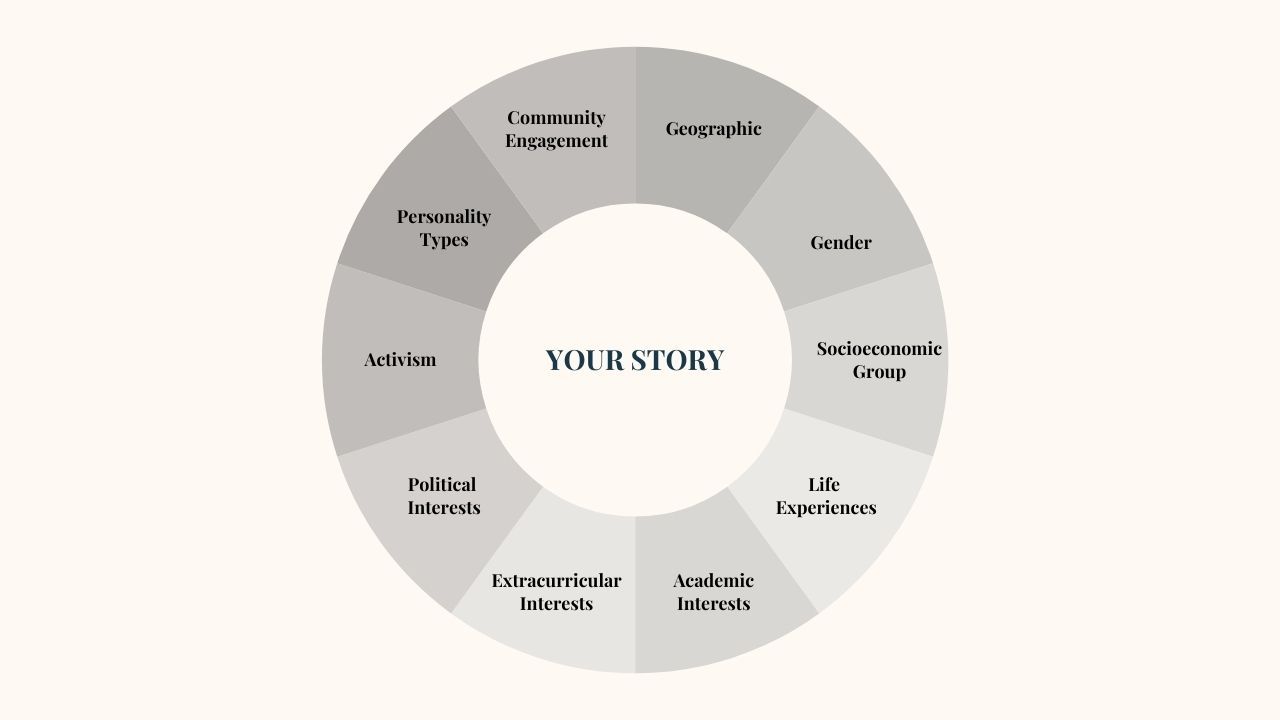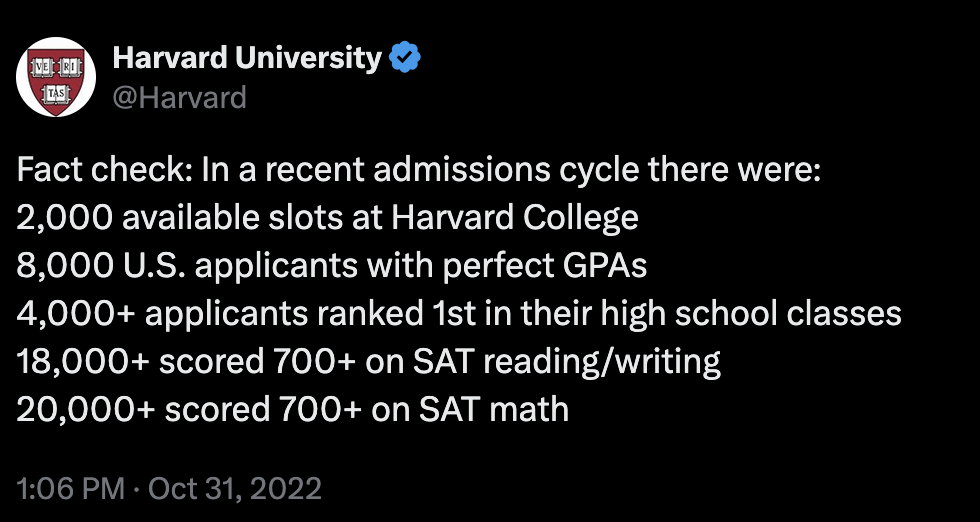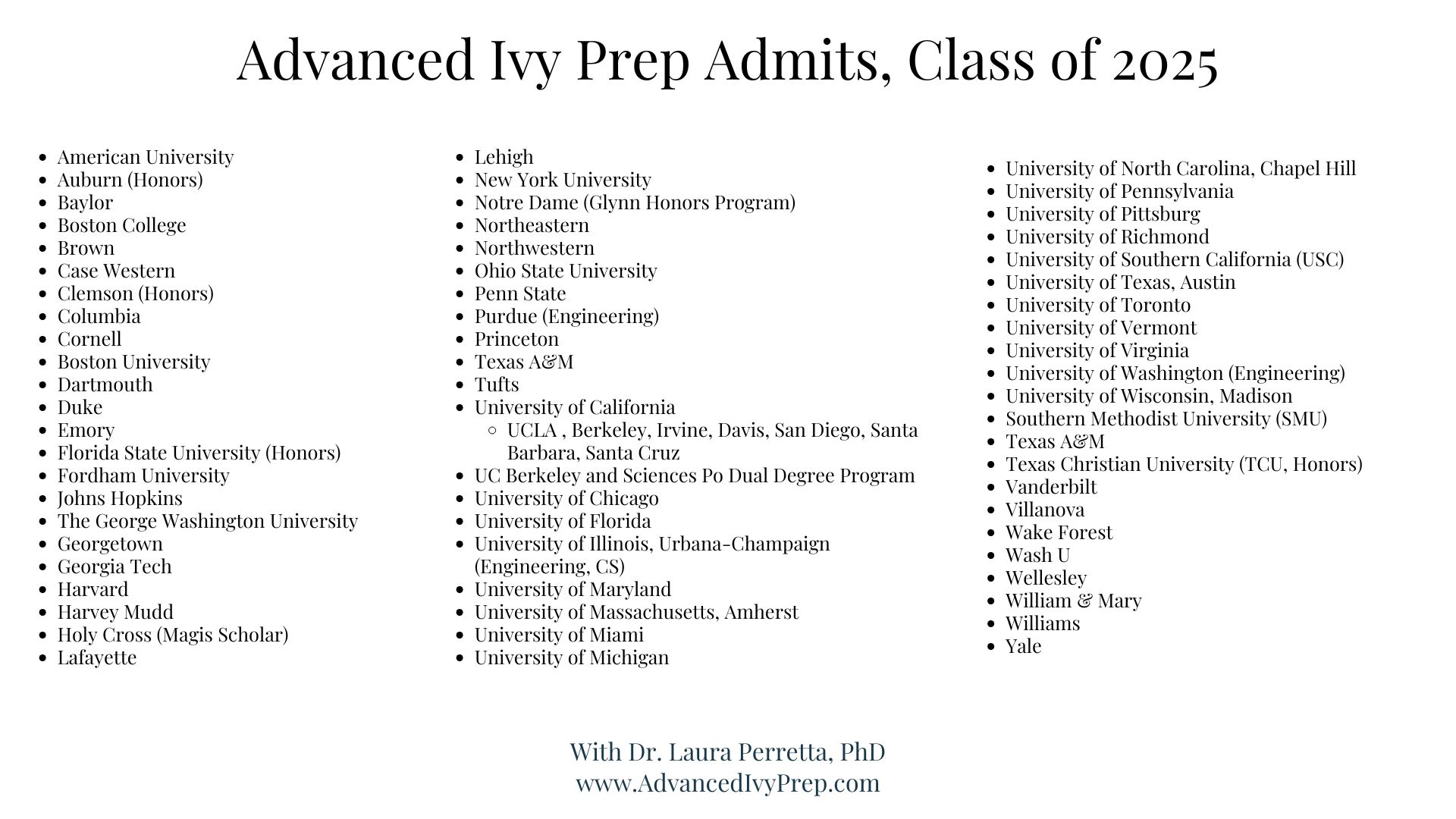
Lessons from 2024/25 #3: Your Personal Narrative
May 22, 2025This is the third in my series of updates following this year’s college admissions cycle. If you missed the previous two weeks, find the full articles about GPA and SAT/ACT/AP in college admissions here.
This week’s topic is the most difficult to implement, but it is so important for optimizing admissions success.
LESSON #3: YOUR PERSONAL NARRATIVE!
The students I work with are not only talented and eager to leave their mark on this world, but they also articulate it clearly and passionately in their applications.
Of the class of 2025, one seeks to improve early childhood literacy through technology. Another aims to promote ways in which sustainability and capitalism can progress together. Others seek to understand public health changes caused by climate change, give voices to the underrepresented in history, or increase the representation of people with disabilities in the arts.
Each of the students mentioned above was accepted to their first choice school early decision!
None of these students started out with true clarity of vision. They cultivated it intentionally. Even more, a strong purpose in an application (and life) is attainable for absolutely everyone with the right approach!
How did they do it?
To start, strong grades in challenging classes is a must. But grades are not enough. See the X post from Harvard below. There were over 8,000 applicants with perfect GPAs but only 2,000 spots in the Freshman class!

In fact, after acceptances came out, one of my past students said that her friends “kept asking me what my ‘trick’ was because I was getting amazing results.” Her friends had similar academic successes and extracurricular activities, but she got into much more selective schools, including the University of Chicago (4.5% acceptance rate) which she ultimately attended.
It is not a trick! The difference is building an application around a personal narrative that is supported by activities.
What is a personal narrative?
Your narrative is one to two sentences about what matters most to you. It should guide how you spend your time. Focusing on the things that matter to you will make much more of an impact on your admissions outcomes AND help you be fulfilled as a person. The narrative then becomes the central theme of your application.
Effective narratives are specific…very specific. For example, many young people are interested in climate change, and it’s hard to stand out when you are saying the same thing as everyone else. The Ivy bound student I mentioned above was interested in combining her love of biology and her desire to solve climate change. Her narrative became understanding the epidemiology of how disease prevalence and virulence would change in response to changing climate and how to keep populations safe in response.
How do I develop a narrative?
If you are early in the process (sophomore year or younger), explore broadly. Read widely. Look for what captures your attention and start to explore it deeper by reading further, talking to people, creating your own projects, or joining already established organizations.
If you are close to applying (juniors and seniors), look at your activities. Hopefully, you have naturally gravitated towards the things you enjoy and care about. Can you connect these activities? Are there problems in the world that you would like to solve that are related to those activities?
For example, the student interested in under-represented voices in history had an interest in history and had also joined and led advocacy organizations for underrepresented groups. She combined her two interests and placed in a National History Day competition by writing a paper on a lesser known yet important female figure in history.
Interdisciplinary narratives are a great way to combine different interests and be more unique. There are many more combinations of fields than fields themselves. If you find that your activities seem more well rounded than pointy, think about how those seemingly different areas can come together.
Math, data analysis, and computer science can be used as a tool to solve problems in so many areas. Debating skills can be applied to advocating for causes you care about in any area. In fact, you can utilize skills from any activity that requires collaboration, communication, or leadership to solve problems in any area. Combining seemingly different activities into one narrative makes all of those activities more relevant and more impactful for admissions.
Why is my narrative important?
Think about what colleges are looking for. They want students who will solve problems and are curious about discovering new things. The way students demonstrate this is to show them the problems that they are currently interested in (climate change, inequity, food insecurity, advancing technology). Alternatively, students can highlight what information they are excited to discover (cures to diseases, how our world functions, historical truths).
If students care about solving problems and discovering new things now, colleges can visualize the students getting involved to solve problems on campus and beyond.
Think about it - how exciting is it to see young people inspired to make the world a better place? I see huge smiles spread across the faces of students when they talk about taking action to solve the problems they care most about. I reflect that smile as I talk to them. Their energy is contagious! That energy also helps college admissions officers want to help the student achieve those goals… and to do it on their campus!
Objection #1: this sounds so artificial … like branding, advertising
I sometimes hear that using a personal narrative sounds too much like branding and feels icky. This misunderstanding can really hurt your chances of admission. Let me explain…
A narrative is not artificially building your application around something you don’t care about. It’s not lying or being insincere. It’s not trying to trick the admissions officers into thinking you are interested in something obscure.
These strategies really don’t work because it’s almost impossible to spend your high school years investing all your time in things you don’t care about and do them to a level that gets you noticed. Not to mention, admissions officers can see right through students that are faking it.
Instead, your personal narrative shows admissions officers something that you genuinely care about, right now!
Objection #2: I don’t know what I’m all about, I’m only in high school
You don’t have to know what you’re going to care about for your whole life or what career path you will take. You may get to college and find something else that excites you even more. That’s great! That’s what college is for!
The point is not to demonstrate that you have your whole life figured out. The point is to demonstrate that you are the type of person who cares about solving problems and someone who takes action towards finding solutions.
Still not convinced? At the bottom, see a list of acceptances from the students who applied this method while working with me this year.
TL;DR
Colleges value that you are the type of person who cares about solving problems and someone who takes action towards finding solutions.
With college admissions, one size does not fit all. If it did, everyone would look the same and no one would stand out! So, if you are looking for personalized guidance in finding your voice and your unique narrative, schedule a free introductory call to see how I can help!
Your Guide,
Dr. Laura Perretta

Want to chat about how I can specifically help your child?
INSTANT ACCESS
STAY CONNECTED WITH NEWS AND UPDATES!
We hate SPAM. We will never sell your information, for any reason.


